SUMMER HEAT GETTING TO YOU? GO BACK IN TIME WITH ME ON A SNOWY RIDE DOWN A OLD 1887 TRAIN RD IN 11 MILE CANYON STATE PARK IN LAKE GEORGE, COLORADO!!
Take this snowy ride down a old 1887 train road in 11 Mile Canyon State Park in Lake George, Colorado. See beautiful snow covered pine trees and rock out croppings along winding mountain river.
<iframe width="560" height="315" src="
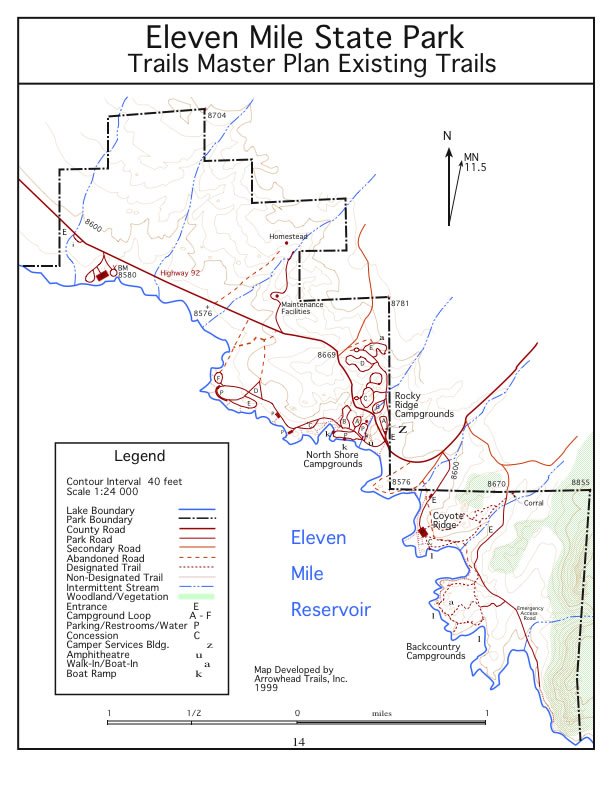
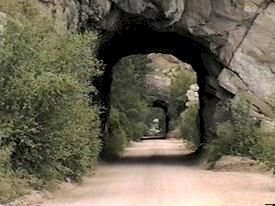
Eleven Mile State Park is a Colorado State Park located in Park County, 11 miles (18 km) south of Lake George, Colorado, United States.
Established in 1970,the 7,662-acre (31.01 km2) park surrounds 3,405-acre (13.78 km2), 5.5 miles (8.9 km) long Eleven Mile Reservoir.
Facilities include a marina, a visitors center and over 300 campsites.
There are 5 miles (8.0 km) of trails available for hikers and bicyclists.
Fish species include cutthroat, rainbow, brown trout and northern pike.
Eleven Mile Reservoir is famous for the thriving Kokanee salmon population found in the river current along the north side of the reservoir known as the Dream Stream.
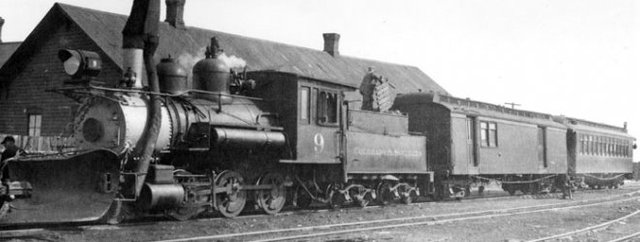
South Park’s wealth of minerals, cattle, and hay resulted in the construction of two railroads through South Park: the Denver, South Park & Pacific (DSP&P)
a narrow gauge railway that operated from 1879 to 1937 and connecting Denver to Leadville and south toward Gunnison; and the Colorado Midland
a standard gauge railway that operated from 1887 to 1918 and connected Colorado Springs to Grand Junction.
Although the two railroads never connected, they did meet at Trout Creek Pass, where the DSP&P headed south and the Colorado Midland headed north.
DSP&P was the first railroad to arrive in the central Colorado mining districts, its main line running from Denver to the South Park town of Como via Platte Canyon.
DSP&P tracks reached the summit of Kenosha Pass on May 19, 1879, and by June had reached Como.
By November tracks crossed the entirety of the valley and by 1880 had extended to the summit of Trout Creek Pass.
The DSP&P primarily moved ore out of South Park, although some cattle and hay were loaded at Jefferson, and inbound trains carried building materials, tools, and finished goods.
This reservoir is also known for being very windy in the afternoon.
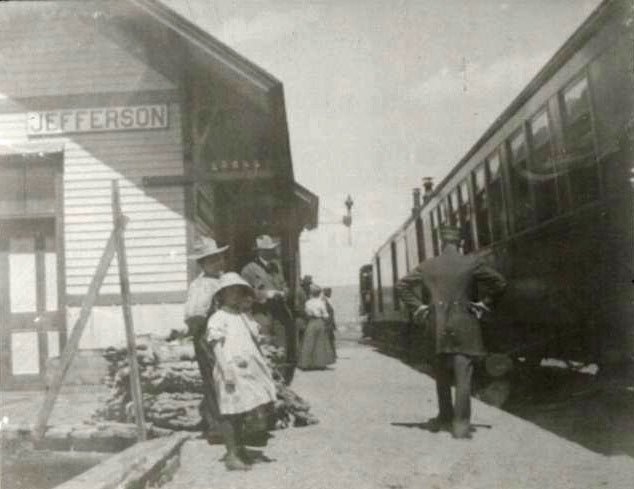
The Colorado Midland Railway arrived in South Park in June 1887, bringing processed foods; furniture;
building materials; sawmill equipment; mining machinery; and mining, farm, and ranch supplies.
Outbound, it carried South Park hay and so much livestock that it became known as the stockman’s railroad.
Livestock was handled primarily through Hartsel and Rifle, Colorado. Originally, the Colorado Midland was intended to connect Colorado Springs,
Leadville, and Salt Lake City, but it only made it as far west as Grand Junction, Colorado.
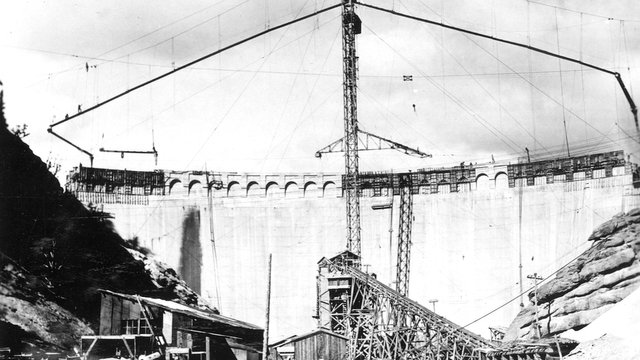
The railroad transformed South Park from a frontier area to a place of bustling commerce,
sophistication, and culture. Mail and newspapers now arrived faster and the telegraph,
which followed the railroad right of way, increased the speed of business transactions.
In January 1881, a hotel opened in Como and four years later, Union Pacific’s hotel division purchased and expanded the hotel, calling it the Pacific Hotel.
The hotel served meals to passengers and crew on arrival and was replaced with the Como Hotel after the Pacific burned in 1896. In 1909,
Como suffered a series of disasters including a fire that destroyed many of the railroad shops. By 1911,
two-thirds of the population had left and when the Colorado and Southern Railway (successor of the DSP&P) ceased operations,
most businesses closed. The Colorado and Southern Railway operated its final passenger train on the Denver South Park & Pacific line on April 25, 1937, between Denver and Como.
Railroad depots still remain in many of South Park’s communities today as well as a roundhouse and railroad hotel in Como.
Thank you for Exploring with me
Beautiful. Looks like winter wonderland.
Thank You @jenntheangel I love places like this.
Me to absolutely beautiful Gods country.